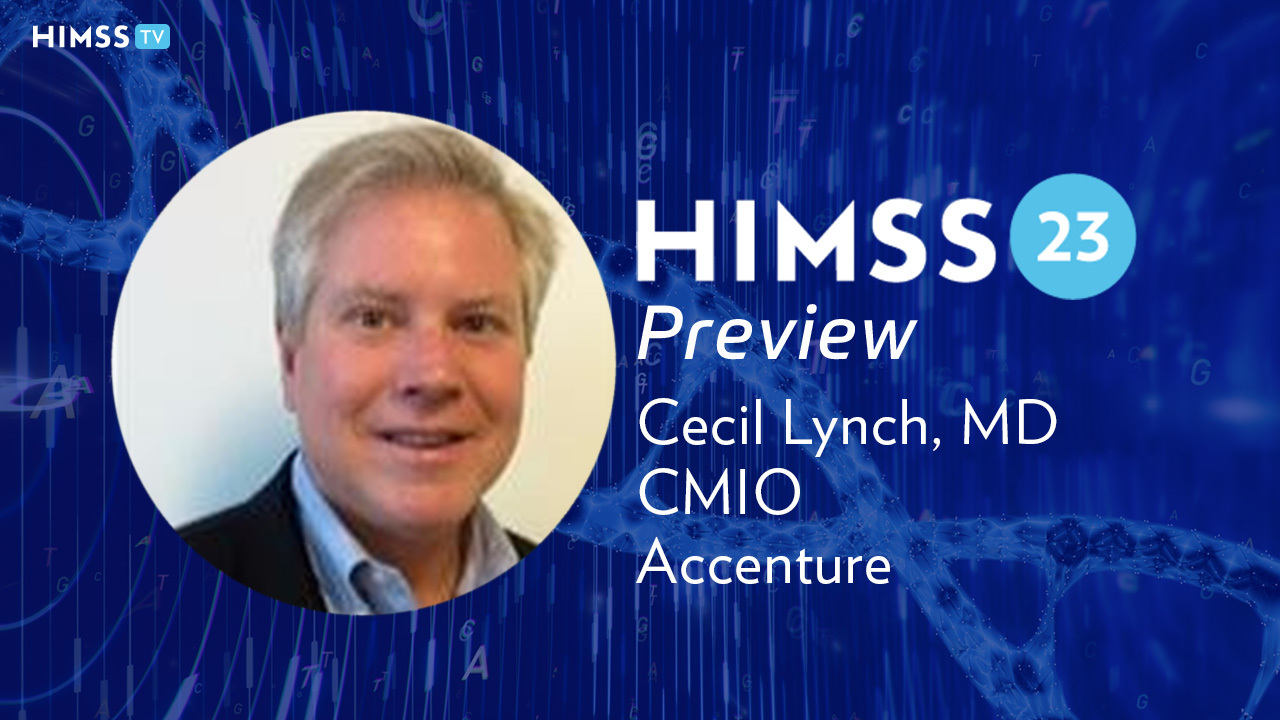
@ShahidNShah


In a preview of his HIMSS23 presentation, Dr. Cecil Lynch, chief medical information officer at Accenture, describes the current role of genomics in healthcare and discusses how to ensure innovations are more widely used to ensure value-based care.
Read on healthcareitnews.com
Precision medicine, which tailors medical treatments to an individual's genetic makeup, lifestyle, and environmental factors, has the potential to revolutionize healthcare. However, making precision medicine more accessible for clinicians can be a complex process. Here are some steps that can be taken to enhance the accessibility of precision medicine for clinicians:
Education and Training: Providing clinicians with adequate education and training on precision medicine concepts, technologies, and applications is crucial. This can include offering continuing medical education (CME) programs, workshops, and seminars on precision medicine topics. Clinicians need to be familiar with the principles of precision medicine, understand the genetic and molecular basis of diseases, and be able to interpret genetic test results.
Clinical Decision Support Tools: Developing and implementing clinical decision support tools can help clinicians incorporate precision medicine into their clinical practice. These tools can provide guidance on interpreting genetic test results, identifying appropriate treatments based on genetic information, and integrating patient-specific data into treatment plans. These tools can be integrated into electronic health records (EHRs) and other clinical workflows to facilitate their use by clinicians.
Genetic Testing Accessibility: Improving the accessibility of genetic testing can make precision medicine more feasible for clinicians. This can involve reducing the cost of genetic tests, expanding insurance coverage for genetic testing, and streamlining the process of ordering and receiving genetic test results. In addition, improving the availability and quality of genetic testing services, including access to specialized genetic counselors, can support clinicians in utilizing genetic information effectively in their practice.
Data Sharing and Interoperability: Enhancing data sharing and interoperability among different healthcare systems and institutions can facilitate the exchange of genetic and molecular data, which is essential for precision medicine. Clinicians should have access to comprehensive and up-to-date genetic and molecular data of their patients to inform their treatment decisions. This requires overcoming technical, regulatory, and privacy challenges associated with data sharing and interoperability, while ensuring patient privacy and data security.
Collaborative Care Models: Precision medicine often involves a multidisciplinary approach, and collaborative care models that involve healthcare providers from different specialties can help make it more accessible for clinicians. Collaborative care models, such as tumor boards, where clinicians from different disciplines come together to discuss and plan treatment strategies for patients, can facilitate the integration of precision medicine into clinical practice by leveraging the expertise of various healthcare professionals.
Resources for Evidence-Based Practice: Providing clinicians with access to evidence-based practice guidelines, clinical trials, and other relevant resources can support them in implementing precision medicine in their practice. These resources can help clinicians stay updated with the latest advances in precision medicine, understand the evidence behind different treatment options, and make informed decisions based on the available evidence.
Financial Incentives and Reimbursement: Establishing appropriate financial incentives and reimbursement mechanisms for clinicians who adopt precision medicine can encourage its adoption and make it more accessible. This can include providing reimbursement for genetic testing, offering incentives for clinicians who incorporate precision medicine into their practice, and aligning reimbursement policies with the goals of precision medicine.
By addressing these factors, precision medicine can become more accessible for clinicians, enabling them to utilize genetic and molecular information to deliver personalized and effective treatments for their patients. It requires a collaborative effort among healthcare providers, policymakers, and other stakeholders to overcome the challenges and promote the integration of precision medicine into routine clinical practice.
Continue reading at healthcareitnews.com
Hospitals are increasingly motivated to drive digital transformation in order to improve patient outcomes, reduce costs, meet regulatory... Hospitals are increasingly motivated to drive digital …
Posted Apr 9, 2023 Hospital Care Healthcare Technology
Connecting innovation decision makers to authoritative information, institutions, people and insights.
Medigy accurately delivers healthcare and technology information, news and insight from around the world.
Medigy surfaces the world's best crowdsourced health tech offerings with social interactions and peer reviews.
© 2025 Netspective Foundation, Inc. All Rights Reserved.
Built on Apr 22, 2025 at 12:57pm